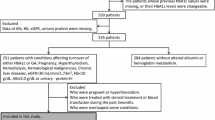Abstract
Diabetes mellitus is a worldwide healthcare issue, with the number of diabetic patients continuing to increase.
Strict control of plasma glucose levels is critical in order to avoid the potentially severe complications of diabetes, making tests for monitoring of glycemic control essential in the management of the disease.
Glycated hemoglobin (HbA1c) measurement is currently the most commonly used test to monitor glycemic control in patients with diabetes. Based on the results of the Diabetes Control and Complications Trial (DCCT), an HbA1c level of <7% has been recommended to prevent the onset and progression of chronic diabetic complications. However, HbA1c may not be suitable for evaluating short-term variations in glycemic control, because of the long lifespan of erythrocytes (120 days).
Glycated albumin (GA) is an indicator of diabetes that is more sensitive to change in plasma glucose than HbA1c.
Lucica® GA-L is a new diagnostic test for measuring GA. The test is based on an enzymatic method that uses liquid reagents requiring no preparation.
Measuring the GA level should provide useful information on glycemic control when monitoring effects of therapy for patients with gestational diabetes, unstable plasma glucose levels, variant hemoglobins or diseases that shorten the lifespan of erythrocytes.

Similar content being viewed by others
References
Diabetes Control and Complications Trial Research Group. The effect of intensive treatment of diabetes on the development and progression of long-term complications in insulin-dependent diabetes mellitus. N Engl J Med 1993; 329: 977–86
UK Prospective Diabetes Study (UKPDS) Group. Intensive blood glucose control with sulphonylurea or insulin compared with conventional treatment and risk of complications in patients with type 2 diabetes (UKPDS 33). Lancet 1998; 352: 837–53
Nathan DM, Cleary PA, Backlund JY, et al. Diabetes Control and Complications Trial/Epidemiology of Diabetes Interventions and Complications (DCCT/EDIC) Study Research Group: intensive diabetes treatment and cardiovascular disease in patients with type 1 diabetes. N Engl J Med 2005; 353: 2643–53
Koenig RJ, Peterson CM, Jones RL, et al. Correlation of glucose regulation and hemoglobin A1c in diabetes mellitus. N Engl J Med 1976; 295: 417–20
Bunn HF, Gabbay KH, Gallop PM. The glycosylation of hemoglobin: relevance to diabetes mellitus. Science 1978; 20: 21–7
American Diabetes Association. Standards of medical care in diabetes. Diabetes Care 2004; 27: S15–35
Jeffcoate SL. Diabetes control and complications: the role of glycated haemoglobin, 25 years on. Diabet Med 2004; 21: 657–65
Bry L, Chen PC, Sacks DB. Effects of hemoglobin variants and chemically modified derivatives on assays for glycohemoglobin. Clin Chem 2001; 47: 15363
Reed P, Bhatnager D, Dhar H, et al. Precise measurement of glycated serum albumin by column affinity chromatography and immunoturbidmetry. Clin Chem Acta 1986; 161: 191–9
Guthrow CE, Morris MA, Day JF, et al. Enhanced nonenzymatic glucosylation of human serum albumin in diabetes mellitus. Proc Natl Acad Sci USA 1979; 76: 4258–61
Acknowledgments
Dr. Kohzuma is an employee of Asahi Kasei Pharma Corporation, manufacturer of the Lucica® GA-L kit. Dr. Koga declares no conflicts of interest directly relevant to the content of this review.
Author information
Authors and Affiliations
Corresponding author
Rights and permissions
About this article
Cite this article
Kohzuma, T., Koga, M. Lucica® GA-L Glycated Albumin Assay Kit. Mol Diag Ther 14, 49–51 (2010). https://doi.org/10.1007/BF03256353
Published:
Issue Date:
DOI: https://doi.org/10.1007/BF03256353




